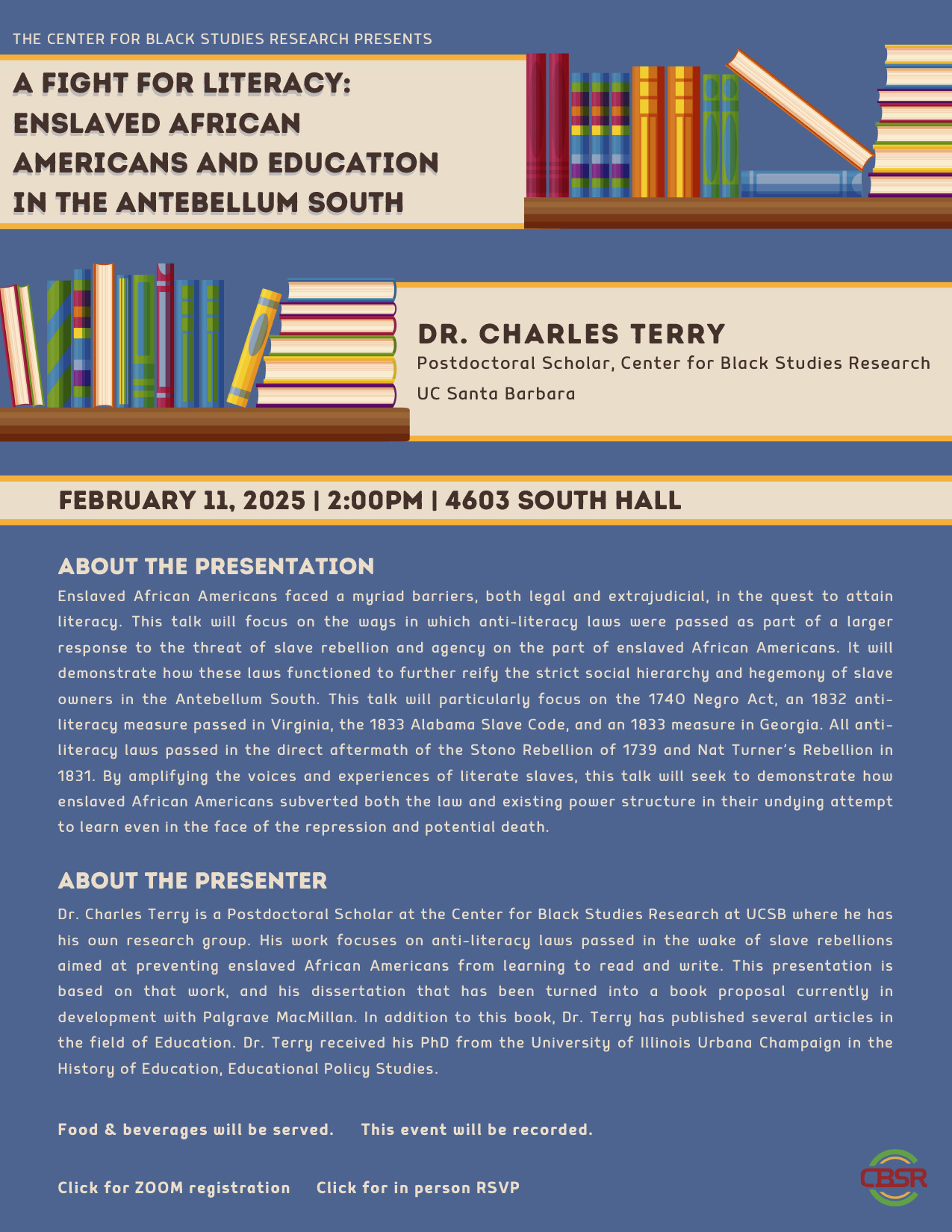A Fight for Literacy: Enslaved African Americans and Education in the Antebellum South

Enslaved African Americans faced a myriad barriers, both legal and extrajudicial, in the quest to attain literacy. This talk will focus on the ways in which anti-literacy laws were passed as part of a larger response to the threat of slave rebellion and agency on the part of enslaved African Americans. It will demonstrate how these laws functioned to further reify the strict social hierarchy and hegemony of slave owners in the Antebellum South. This talk will particularly focus on the 1740 Negro Act, an 1832 anti- literacy measure passed in Virginia, the 1833 Alabama Slave Code, and an 1833 measure in Georgia. All anti- literacy laws passed in the direct aftermath of the Stono Rebellion of 1739 and Nat Turner’s Rebellion in 1831. By amplifying the voices and experiences of literate slaves, this talk will seek to demonstrate how enslaved African Americans subverted both the law and existing power structure in their undying attempt to learn even in the face of the repression and potential death.
Food & beverages will be served. This event will be recorded.
Dr. Charles Terry, is a Postdoctoral Scholar at the Center for Black Studies Research at UCSB where he has his own research group. His work focuses on anti-literacy laws passed in the wake of slave rebellions aimed at preventing enslaved African Americans from learning to read and write. This presentation is based on that work, and his dissertation that has been turned into a book proposal currently in development with Palgrave MacMillan. In addition to this book, Dr. Terry has published several articles in the field of Education. Dr. Terry received his PhD from the University of Illinois Urbana Champaign in the History of Education, Educational Policy Studies.